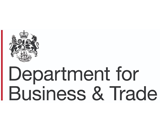Scam's month - avoid online holiday scams
UK holidaymakers are being urged to check, then double check, their bookings are ATOL protected, after customers have been left out-of-pocket by bogus internet travel companies.
By law, every UK travel company which sells air holidays is required to hold an ATOL, which stands for Air Travel Organiser’s Licence.
As part of the National Scam Awareness Month, the Civil Aviation Authority (CAA) is warning of scam websites, which are falsely displaying the ‘ATOL Protected’ logo – the sign which means UK air holiday passengers will be refunded or flown home if their travel company goes bust.
Furthermore the phoney travel sites, which look UK based but are typically operated from abroad, are defrauding customers by taking their hard-earned money and issuing fake airline documents – leaving them out-of-pocket, with nowhere to go.
Many customers, lured by the unusually cheap flight prices, have reported there was no online credit card payment facility and, were instead asked to pay a deposit or the full amount via a bank transfer.
A steady stream of duped holidaymakers have been in touch with the CAA and dozens more have contacted trading standards teams and police forces across the country.
However bogus websites are often only active for a few weeks and can be operated in several countries, leaving it difficult for the authorities to track criminals down.
To reduce the chances of becoming victim, the CAA has the following advice:
- Check the ATOL Protected logo is legitimate.
- All ATOL Protected logos should include a reference number which is four to five digits long, and may include a T at the start. If this number is not included, it could be a bogus travel firm.
- Input this reference number and/or the online travel company name, into the Check an ATOL database, which has a list of all ATOL registered companies.
- Make sure you receive an ATOL certificate. On booking your flight-inclusive package, or flight plus accommodation, all ATOL protected UK travel companies must now issue an ATOL certificate as soon as the consumer pays any money towards their trip.
- Don’t part company with your money if you have any doubts about an online travel company.
Bogus websites & the signs to look out for
- The ATOL Protected Logo may not include the four or five digit licence reference number.
- Unusually cheap flights advertised to all parts of the world.
- Poor contact details. Advertised telephone is not answered and has few if any other contact details, such as an address.
- No online payment facility and customers are asked to pay for their flight bookings by bank transfer.
- Once a deposit/fee has been paid, consumers are told the cost has gone up or asked to pay extra.
- The consumer may receive a document referring to a reservation rather than a confirmed flight ticket or does not receive anything at all.
- And just because a website ends in .co.uk or a contact telephone number has a London dialling code, this does not always mean they are UK based - both of these can be operated from abroad.
Richard Jackson, Group Director for Consumer Protection at the CAA, said: “ATOL gives you the peace of mind that you won’t lose your money and will get home safely even if your travel company goes bust.
“However, we are aware of a number of bogus websites advertising unusually cheap deals, which are operated from abroad and falsely claiming to have ATOL protection.
“It is really important that customers look beyond the price and check, and double check, the travel company has ATOL protection. Once you’ve confirmed this and paid for your holiday, make sure you get an ATOL certificate.”
The Association of Chief Police Officers recently released figures relating to all UK online tickets scams. The data showed £3.7 million was handed over to fraudsters in 2013, for a range of tickets including concert, festival and flight tickets. The data revealed 1,015 scam flight ticket sales had been reported, accounting for 22% of total scam sales.
Anyone who feels they have been the victim of a bogus holiday company and has lost money should contact the Citizens Advice Bureau, on 08454 04 05 06. Citizens Advice works with trading standards teams across the country to investigate fraud. In addition you can report fraud and internet crime to www.actionfraud.police.uk.
As part of a wider strategy, the National Trading Standards eCrime Team has been set up to protect consumers and businesses from the rising levels of internet crime and online fraud.
Lord Toby Harris, Chairman of National Trading Standards Board, said: “Bogus travel websites are a lucrative venture for criminals, given the sums of money they can make in a relatively short space of time.
“These fraudsters are clever and create sites that look legitimate, luring people in with eye-catching deals. It’s vital that consumers are on their guard to avoid being duped – if something doesn’t feel right, don’t part with your money until you’ve thoroughly checked it out.
“And if you suspect a company is bogus, report it. That way we can work to stamp out these cruel scams that every year leave families out of pocket, and without a holiday.”
More information on how to make sure your holiday is ATOL protected is available at www.packpeaceofmind.co.uk.






